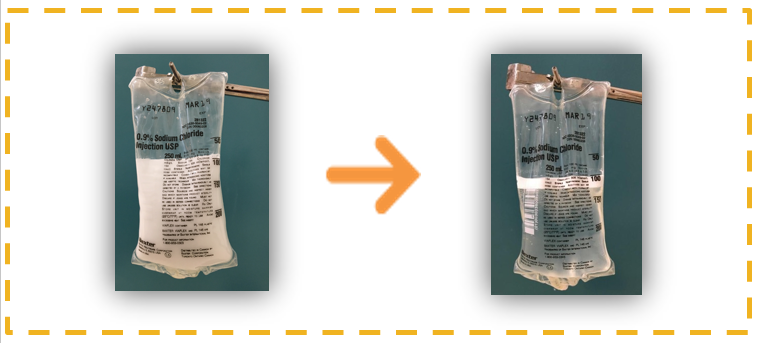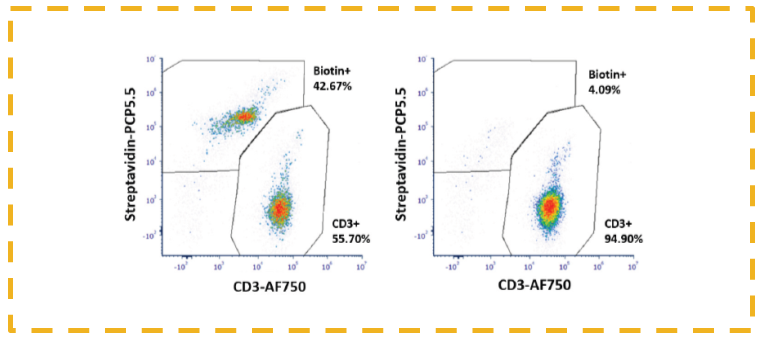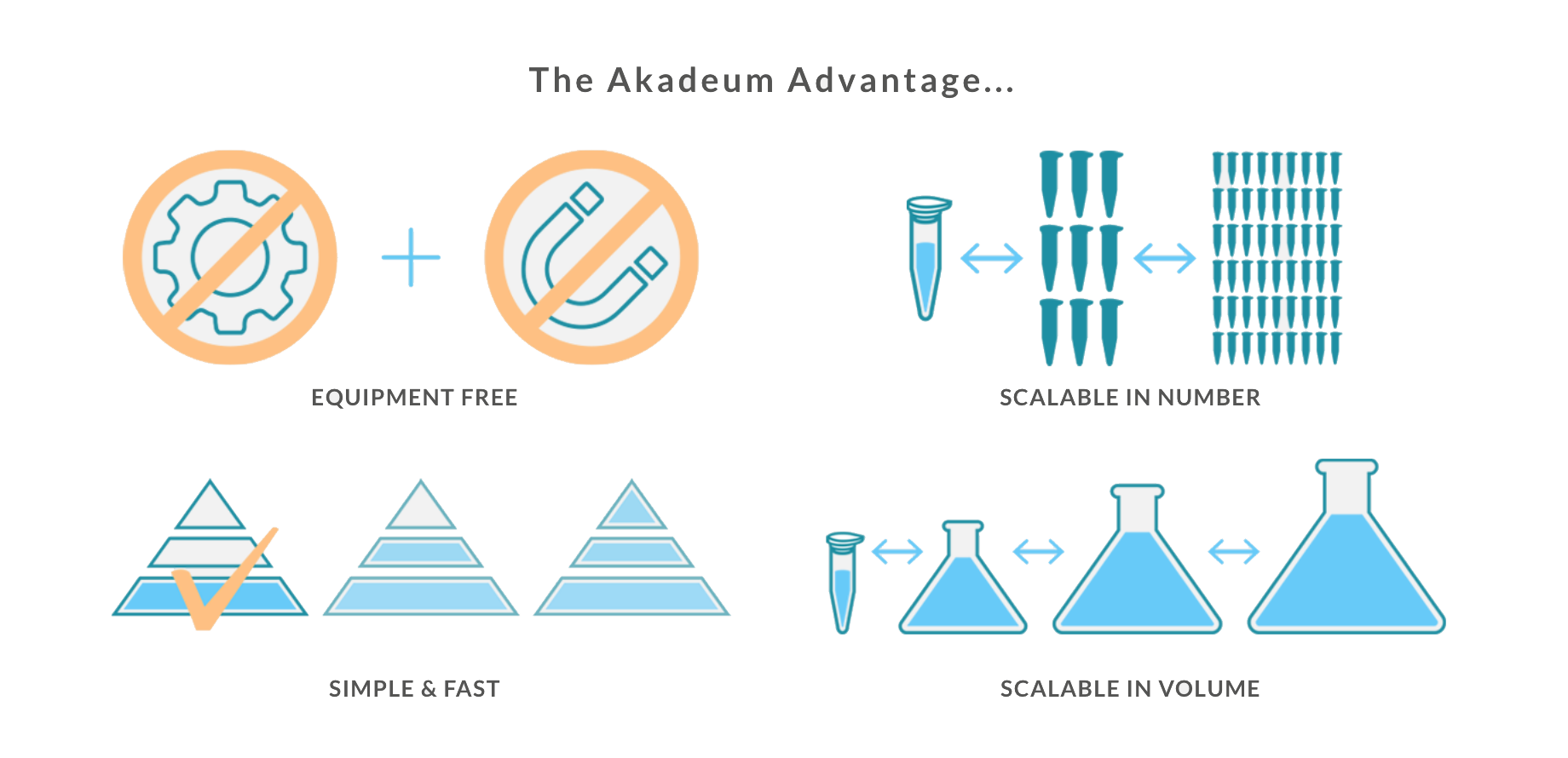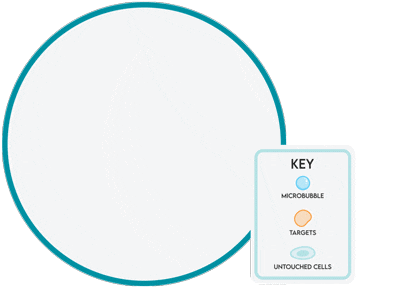Microbubbles for Cell Therapy
Akadeum Represents a Breakthrough in Process Improvements for Cell Therapy Manufacturing
Enabling Better Processes to Improve Human Health
Akadeum specializes in the isolation of high value biological targets for downstream use.
Akadeum’s microbubbles can be functionalized to address specific needs in cell therapy workflows, including cell isolation, cell activation, and the depletion of unwanted elements from a sample.
There is a strong need for efficient, rapid, and gentle cell sample preparation methods to enable groundbreaking work in cell therapy, and it is critical that these processes can be done at scale – in both concurrent processing as well as processing in larger fluidic volumes.
The Next Generation of Separation Technology:
Microbubbles for Cell Therapy Manufacturing
Akadeum’s microbubble technology is helping cell therapy manufacturing overcome longstanding limitations in throughput and scalability.

Microbubbles in Action: T Cell Isolation from Leukopak
Akadeum’s proprietary microbubble workflow can be used for simple T cell isolation from leukopak material. This enables large-volume cell isolation using less equipment and an exceptionally gentle workflow. With the inherent flexibility of the microbubble platform, the separation can be done directly in a bag, or can be done via tube processing.

As shown here, the envisioned process at scale-up allows 10 billion microbubbles to be deployed for cell enrichment that occurs directly in the bag.

These flow plots depict the use of Akadeum’s negative selection protocol to enrich untouched T cells from leukopak material.
- No pre-processing was required, this isolation occurred directly from the leukopak sample
- Microbubble enrichment of T cells from leukopak material consistently results in >90% yield
Introducing Akadeum’s Microbubble Platform Technology:
Buoyancy-Based, Single-Container Separation that Scales
Akadeum has developed a novel method to separate cells, proteins, DNA, RNA, and other analytes from a complex biological mixture.
Our proprietary functionalized microbubbles are simply mixed into the sample where they bind to their targets and, leveraging their inherent buoyancy, float the bound targets to the top of the sample container for collection or removal. It’s self-separation in a single container, eliminating common headaches like pour-offs, tube transfers, and processing through volume-constrained columns.
Elegant in Simplicity, Powerful in Application:
The Akadeum Advantage
Our buoyancy-based approach offers an elegant workflow for floatation-based separation that is exceptionally gentle on valuable analytes while delivering high purity and exceptional yield. The unique mechanism of action enables separation in nearly any volume, from volumes of 10 μL all the way up to liters per assay. This unique scalability enables exceptional throughput, both in terms of fluidic volume being interrogated as well as the number of samples that can be concurrently processed in parallel.

Partnering with Akadeum:
Delivering the Benefits of Microbubble Technology
Akadeum is actively seeking partnerships to provide the benefits of floatation-based target isolation.
Akadeum’s technology benefits partners’ processes with increased throughput, reduced complexity, and superior sensitivity compared to magnetic bead-based extraction. If you are interested in learning more about partnering with Akadeum, you can fill out the form below or contact us at info@akadeum.com. We look forward to hearing from you!




